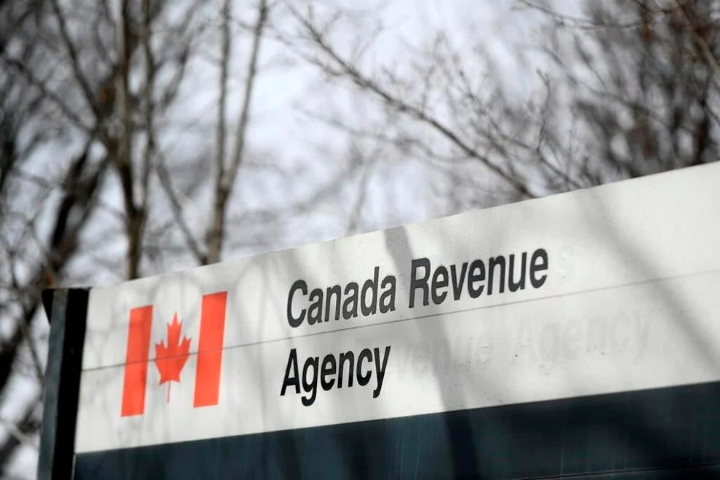
Tax filing season has officially kicked off as Monday marks the first day that Canadians can begin filing their income tax and benefit returns online. A Canada Revenue Agency sign in Ottawa is shown on Monday, March 1, 2021. THE CANADIAN PRESS/Justin Tang
Tax filing season has officially commenced in Canada, with Monday marking the beginning of the period when Canadians can start filing their income tax returns online.
According to the Canada Revenue Agency (CRA), individuals opting for paper filing should have already received their income tax package via mail.
For most Canadians, the deadline to file tax returns is April 30, which coincides with the date for those who owe money to the CRA to make their payments.
However, self-employed individuals, along with their spouses or common-law partners, have until June 15 to file their taxes. Given that June 15 falls on a weekend, the CRA will accept returns postmarked on or before June 17 as timely.
Self-employed Canadians are still required to settle any dues owed to the CRA by the April 30 deadline to avoid interest charges.
The Chartered Professional Accountants of Canada (CPA) have highlighted several changes for the 2024 tax filing season. John Oakey, the CPA's vice-president of taxation, mentioned in a post on the organization's website that the temporary flat rate method for claiming home office expenses by employees is no longer applicable.
Previously, eligible employees could claim up to $2 per day worked from home due to the COVID-19 pandemic, with annual maximums of $400 in 2020 and $500 in 2021 and 2022. However, for 2023 and beyond, employees must follow a more detailed method to make such claims.
Additionally, taxpayers no longer need to apply for advance payments of the Canada Workers Benefit when filing their tax returns, as these payments are now automatically issued to eligible recipients based on the previous tax year's eligibility.
Last April, rules governing the First Home Savings Account program were implemented to aid Canadians in saving for their first home. Contributions to an FHSA are deductible, and the income earned within it is non-taxable. Qualified withdrawals for purchasing a first home are also tax-free.
Moreover, the Multigenerational Home Renovation Tax Credit is now available, offering a refundable credit of up to $7,500 or 15% of qualifying renovation costs incurred after December 31, 2022, aimed at assisting with the creation of secondary units for seniors or adults eligible for the disability tax credit.
The CRA reported processing over 18 million refunds for the 2022 tax year, averaging $2,262 each. Approximately 78% of refunds were issued via direct deposit, with the remainder sent by cheque.
For individuals with modest incomes and simple tax situations requiring assistance, free tax clinics staffed by volunteers are available, along with virtual appointments, as detailed on the CRA’s free tax clinics page.















